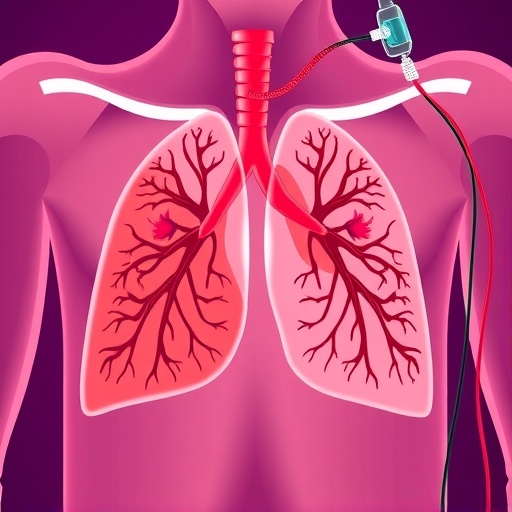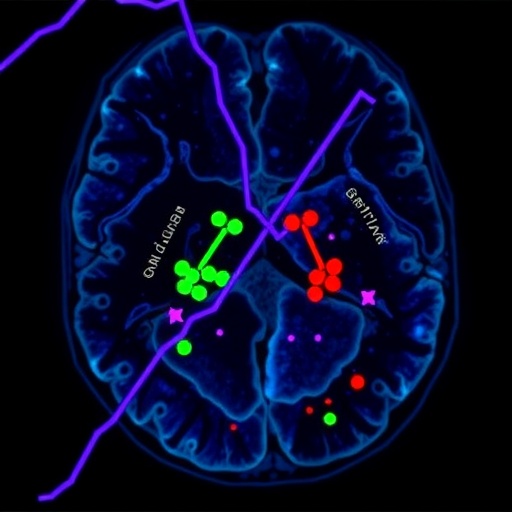
In recent years, the relationship between neuroinflammation and mood disorders has gained significant attention in the field of neuroscience. The study spearheaded by Sun et al. investigates a promising compound, SRT1720, which demonstrates potential in mitigating symptoms associated with depression induced by lipopolysaccharide (LPS) in mouse models. The implications of their findings extend beyond mere behavioral improvements, shedding light on the complex interactions between inflammatory processes and neuronal health.
Depression, as one of the most prevalent mental health disorders, presents unique challenges for both patients and clinicians. Traditional antidepressants often take weeks to elicit effects and may not even work for all individuals. The challenge has led researchers to explore alternative therapeutic strategies that focus on the underlying biological mechanisms. The work by Sun and colleagues adds a new dimension to our understanding of how compounds like SRT1720 can play a role in this complex landscape.
Lipopolysaccharides are components of the outer membrane of Gram-negative bacteria and are recognized for their ability to induce systemic inflammation. In the context of this study, the administration of LPS to mice reproduces features of depressive-like behavior often observed in humans facing chronic inflammation. Sun et al. meticulously recreated this model to examine the effects of SRT1720 and provided insights into its mechanisms of action.
One of the key findings of their research revolves around the activation of Parkin-mediated mitophagy. Mitophagy, the process by which damaged mitochondria are selectively degraded, is crucial for maintaining cellular health and function, especially in neurons. Impaired mitophagy has been linked to various neurodegenerative disorders and is believed to contribute to the pathophysiology of depression. By promoting mitochondrial quality control through Parkin activation, SRT1720 may assist in relieving depressive symptoms.
The neuroprotective effects of SRT1720 go beyond just combating depressive-like states. The compound is known for its role as a resveratrol analog, which has previously been associated with various health benefits, including improving metabolic health and enhancing longevity. These properties suggest that SRT1720 could potentially address multiple facets of health by targeting inflammation at a systemic level.
The cohorts of mice used in this study were subjected to both behavioral tests and biological assessments to gauge the impact of SRT1720 comprehensively. The researchers implemented a series of well-established paradigms designed to evaluate anxiety and depressive-like behavior, including the forced swim test and the sucrose preference test. The results indicated significant improvements in the behavioral outputs of the treated group compared to controls.
Moreover, beyond behavioral metrics, Sun et al. employed advanced biochemical assays to delve deeper into the underlying cellular changes elicited by SRT1720. Analysis of inflammatory markers revealed a marked reduction in pro-inflammatory cytokines amongst treated mice. This observation supports the hypothesis that SRT1720 acts not only as a behavioral modifier but also as an anti-inflammatory agent, broadening its utility in psychiatric health.
Investigation into the mitochondrial dynamics within neuronal cells further solidified the findings of this study. SRT1720 administration was found to enhance mitochondrial membrane potential and promote the selective elimination of dysfunctional mitochondria. This suggests a reinvigoration of cellular energy metabolism, essential for optimal neuronal function and survival.
The implications of these findings extend well beyond the laboratory setting. As the global prevalence of depressive disorders continues to rise, there is an urgent need for innovative treatments that address the biological underpinnings of symptoms. The identification of compounds like SRT1720, which improve both behavior and cellular health, represents a potential turning point in therapeutic options available for clinicians.
As researchers continue to examine the multifaceted roles of SRT1720, it is essential to consider the intricacies of individual responses to treatment. Variability in mitochondrial function and inflammatory profiles among patients may influence the efficacy of SRT1720, necessitating a personalized approach in future clinical applications. The research by Sun et al. provides a foundation for further studies aimed at elucidating these variables.
Moreover, the findings encourage the scientific community to delve deeper into the exploration of other small molecules that may offer similar benefits in addressing depression-related behaviors and improving mitochondrial health. The ongoing discovery of compounds that exert neuroprotective effects via the modulation of inflammation and mitochondrial dynamics could pave the way for novel therapeutic strategies targeting mood disorders.
In conclusion, the research conducted by Sun, Li, Shi, and their colleagues offers significant insights into the neurobiological mechanisms underlying depressive-like behaviors. Through the lens of SRT1720’s effects on LPS-induced depression, we gain a greater understanding of the intersections between inflammation, mitochondrial functionality, and mental health. The promise of such compounds not only fosters hope for those affected by depression but also highlights the importance of continued research in uncovering alternative treatment pathways rooted in our evolving understanding of neuroscience and cellular health.
Subject of Research: The effects of SRT1720 on LPS-induced depressive-like behaviors and mitophagy activation in mice.
Article Title: SRT1720 ameliorates LPS-induced depressive-like behaviors in mice and activates Parkin-mediated mitophagy.
Article References:
Sun, L., Li, C., Shi, J. et al. SRT1720 ameliorates LPS-induced depressive-like behaviors in mice and activates Parkin-mediated mitophagy. BMC Neurosci 26, 56 (2025). https://doi.org/10.1186/s12868-025-00968-2
Image Credits: AI Generated
DOI: 10.1186/s12868-025-00968-2
Keywords: SRT1720, LPS, depressive-like behaviors, mitophagy, neuroinflammation, mouse model, antidepressant therapy, Parkin, cytokines, mitochondrial function.
Tags: alternative antidepressant strategiesbehavioral improvements in depressionbiological mechanisms of depressionchronic inflammation and depressioninflammatory processes and neuronal healthlipopolysaccharides and mental healthLPS-induced depression in micemouse models of depressionneuroinflammation and mood disordersneuroscience research on mood disordersSRT1720 and depressiontherapeutic compounds for mental health




